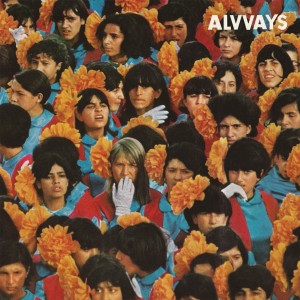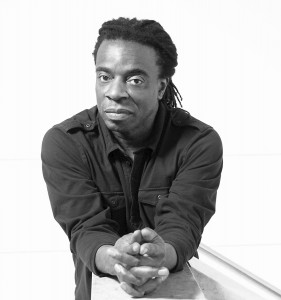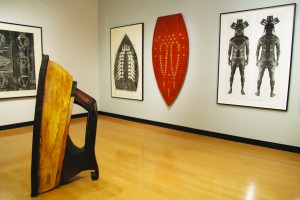Alvvays’ self-titled debut album is a breath of cool, turquoise summer music. The band hails from Toronto, featuring lead singer Molly Rankin, keyboardist Kerri MacLellan, lead guitarist Alec O’Hanley, bassist Brian Murphy, and drummer Phil MacIssac. For most of Alvvays, the mix is a smooth surface of keyboard, bass, and drums behind a conversation between Rankins’ vocals and O’Hanley’s guitar. The album evokes a feeling of heartbreak. Rankin’s dreamy and childlike voice narrates the breakdown of her relationship.
Beginning with “Adult Diversion”, a jovial melody masks lament. Rankin wants to reach out towards joy. Specifically, a life with her unnamed love interest. She’s not sure how to act around him or enter into his life. “Is is a good time?/ Or is it highly inappropriate?” She seems to presuppose her failure. But then, at 2:15, the guitar picks up. It’s hopeful, she’s gotten closer to what she wants, yet still worries about failure, rounding back through the melancholy chorus.
“Archie, Marry Me”, is the sunniest of the tracks. It could be a summer pop hit. Rankin offers requests and promises to her lover. “Hey, hey, marry me, Archie!” she sings, hooking your ear each time. Despite her best attempts, he won’t consider her that way. Nonetheless, the song keeps up a happy tone throughout. This is the height of their relationship and she enjoys every minute of their time together.
 Archie fades into a drum beat that leads in “Ones Who Love You”. This track is the first instance of musical tone following the somber lyrical mood. Slower, Rankin has pulled away from us. She’s distant and beginning to recount her troubles. Her voice is drenched in reverb as she sings, morose yet defiant: “When the wheels come off,/ I’ll be an astronaut./ I won’t be lost in space./ I will be skipping rocks.” She knows that nothing will ever feel perfect, but in accepting that sadness, she finds peace.
Archie fades into a drum beat that leads in “Ones Who Love You”. This track is the first instance of musical tone following the somber lyrical mood. Slower, Rankin has pulled away from us. She’s distant and beginning to recount her troubles. Her voice is drenched in reverb as she sings, morose yet defiant: “When the wheels come off,/ I’ll be an astronaut./ I won’t be lost in space./ I will be skipping rocks.” She knows that nothing will ever feel perfect, but in accepting that sadness, she finds peace.
Abruptly, the emptiness is broken by the warm guitar in “Next of Kin”. She’s remembering the better moments of the end of the relationship, listing them out with a smile. However, things aren’t all rosy. “If I knew you couldn’t swim,/ we would never have gone in,” she smirks, telling the story of her lover’s metaphorical drowning. She resolves to not take the blame for his reluctance. “I left my love in the river.” It was his fault. He couldn’t keep up with her. In that light, she can speak of him without anger and reminisce about the mix of good and bad that comes with true relationship.
A distant electric strum begins “Party Police”. The sun is setting. Rankin is no longer talking to us. She’s speaking more directly to this man. Expressive, what she’s telling him is new information. Becoming desperate, her memories have rekindled desire. She begs him, “You don’t have to leave./ You could just stay here with me.” She hurts everyday when she sees him apart from her. The song reaches an emotional peak at 3:20 with a beautiful voice crack from Rankin. The song begins to tumble forward. “If you don’t want to,/ you don’t have to,” she admits, defeated. For the last six seconds of the track, the guitar takes over in a distorted hum. It’s anxiety inducing. Like a wave washing over you, it feels both refreshing and terrifying.
“The Agency Group”, pulls you out of the ocean, gasping. It kicks off with a sugary surf guitar sound and driving beat. Rankin comes into the track, almost monotone. “I’ll admit, I’ve been losing sleep./ Rifling through your toxicology.” Though her voice remains so dry throughout the song, she’s able to compel emotion with the help of a strong and rambling guitar. After each line she sings, O’Hanley digs into his instrument. The effect is that of Rankin holding in her emotions, yet feeling torn to pieces inside. “And you whisper you don’t think of me that way./ When I mention you don’t mean that much to me.” As the song ends, Rankin’s voice fades out, mixing evenly with O’Hanely’s guitar.
A new sound is present on the album in “Dives”. MacLellan begins the track with a melancholy synth. Rankin is almost mumbling now. You can barely understand her over the background music. She’s just talking to herself. Then, her voice rises into, “I’ve been patient for a long time/… You never get it on the first try.” The guitar takes over fully as the track comes to a close.
The warm guitar returns for “Atop a Cake”. Rankin is girlish and sweet as she starts in, “I lie on the sofa./ I love what you said last night./ I’d like us on top of a cake, but you won’t let me take a bite.” She becomes defiant to his words, knowing how he’s treated her in the past. “How do I remain apart,/ if you put me in a gown.” She won’t let him drive the relationship. She’s going to be strong and independent of his need to control.
The last track, “Red Planet”, removes Rankin from this man. She admits to still loving him, but knows that he’s hurt her too much to ever be good for her. This is the most morose track on the album. MacLellan’s synth provides a backdrop for her lyrics, with sparse drums dotting the rhythm. “Well, I waited for you out here,/ but that was just delusional.” On her second pass through the chorus, the guitar comes in behind her, highlighting a sad tone in the song.
Alvvays is an excellent album with a great range of musical tone and depth. It is available on iTunes and Spotify. Check it out if you like Best Coast, Surfer Blood, or Cayucas.


